Fitness Nutrition 101: Eating for Energy and Endurance
Fitness is a journey that requires consistent effort and dedication. Whether you’re trying to shed a few pounds, build muscle, or improve your overall health, the foods you eat play a crucial role in your success. The right nutrition can provide the energy and endurance you need to push through tough workouts, recover quickly, and see results faster. In this blog post, we’ll take a closer look at fitness nutrition 101 and how you can eat for energy and endurance to achieve your fitness goals.
What is Fitness Nutrition?
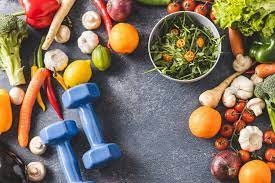
Fitness nutrition is a branch of nutrition science that focuses on optimizing athletic performance and recovery through dietary choices. Whether you are an amateur or professional athlete, a fitness enthusiast, or just someone who wants to improve their health, fitness nutrition can help you achieve your goals by fueling your body with the nutrients it needs to perform at its best.
Unlike fad diets that promise quick results, fitness nutrition is based on sound scientific principles that have been proven to enhance athletic performance and promote overall health and wellness. By following a balanced and nutritious diet, you can optimize your body’s energy production, endurance, strength, and recovery, and reach your fitness goals faster and more effectively.
Fitness nutrition is not about counting calories or restricting certain foods. Rather, it’s about understanding the role that different nutrients play in your body and how to balance them for optimal performance and health. It’s about choosing whole, nutrient-dense foods that provide your body with the vitamins, minerals, antioxidants, and macronutrients it needs to thrive.
Whether you are a runner, weightlifter, swimmer, or cyclist, nutrition can make a significant difference in your athletic performance and recovery. With the right diet and lifestyle choices, you can fuel your body with the energy and endurance it needs to crush your fitness goals and feel your best every day. So, if you are ready to take your fitness to the next level, start with fitness nutrition!
The Importance of Eating for Energy and Endurance
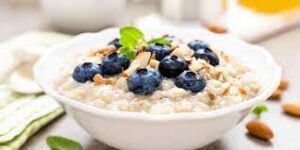
When it comes to achieving your fitness goals, you can’t simply rely on exercise alone. To perform at your best, you need to ensure that your body is fueled with the right nutrients. This is where fitness nutrition comes in.
Eating for energy and endurance is key if you want to perform your best during workouts, build muscle, and improve overall athletic performance. When you eat the right foods, you’ll have more energy to power through tough workouts, and you’ll be able to maintain your endurance throughout your entire routine.
In addition to helping you perform at your best, eating for energy and endurance can also help you recover more quickly after exercise. When you consume the right nutrients after a workout, your body can begin repairing itself and building new muscle tissue right away.
Overall, eating for energy and endurance is an important part of any fitness routine. By fueling your body with the right nutrients, you’ll be able to reach your fitness goals more quickly and with greater ease. So, it’s time to start paying more attention to your nutrition if you want to get the most out of your workouts!
Macronutrients for Endurance

When it comes to endurance, what you eat is crucial. Not only do you need to fuel your body, but you also need to provide it with the nutrients it needs to perform at its best. Macronutrients are the foundation of any good endurance nutrition plan, and understanding what they are and how they work is key to achieving your fitness goals.
Carbohydrates: The Fuel for Your Workouts
Carbohydrates are the body’s primary fuel source for endurance activities. They are broken down into glucose, which is used to fuel the muscles during exercise. When you exercise, your body burns through its stores of glucose, which is why it’s essential to consume enough carbs to maintain your energy levels throughout your workout.
The recommended intake of carbohydrates for endurance athletes is around 6-10 grams per kilogram of body weight per day. This means that if you weigh 150 pounds (68kg), you should aim to consume between 408-680 grams of carbs per day. Good sources of carbohydrates include whole-grain bread, pasta, rice, fruits, and vegetables.
Proteins: The Building Blocks for Endurance
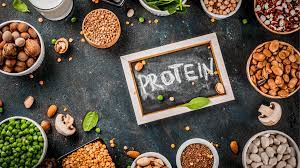
Protein is essential for repairing and building muscle tissue after exercise, making it a vital macronutrient for endurance athletes. During long-distance endurance events, your muscles can break down, leading to muscle damage. Protein helps repair and rebuild damaged muscle tissue, reducing recovery time and improving performance.
The recommended intake of protein for endurance athletes is around 1.2-1.7 grams per kilogram of body weight per day. This means that if you weigh 150 pounds (68kg), you should aim to consume between 82-116 grams of protein per day. Good sources of protein include lean meats, poultry, fish, beans, nuts, and dairy products.
Fats: The Right Kind for Optimal Endurance
Fat is the most energy-dense macronutrient, providing 9 calories per gram. While you may think that a low-fat diet is the best option for endurance athletes, consuming enough of the right kinds of fats can be beneficial. Healthy fats, such as omega-3 fatty acids, can help reduce inflammation and improve joint health, which can aid in recovery and performance.
The recommended intake of fat for endurance athletes is around 20-35% of total calories. Good sources of healthy fats include fatty fish, avocado, nuts, and seeds.
Carbohydrates: The Fuel for Your Workouts

When it comes to eating for energy and endurance, carbohydrates are a crucial component. Carbs are the body’s preferred source of fuel, providing the energy needed for both high-intensity and endurance exercise.
Carbohydrates come in two forms: simple and complex. Simple carbs are found in fruits, honey, and processed foods like candy and soda. While they may provide a quick burst of energy, they are quickly burned off, leaving you feeling sluggish and low on energy shortly after consuming them.
Complex carbs, on the other hand, are found in foods like whole grains, fruits, vegetables, and legumes. These carbs provide sustained energy, slowly releasing glucose into the bloodstream, and keeping you feeling energized throughout your workout.
For endurance athletes, carbs are especially important as they help replenish glycogen stores, which can become depleted during prolonged exercise. Consuming complex carbs before and during endurance exercise can help delay fatigue and increase endurance.
But, not all carbs are created equal. It’s important to focus on consuming nutrient-dense, whole-food sources of carbs rather than processed and refined carbs. These types of carbs are often packed with fiber, vitamins, and minerals that are essential for optimal health and athletic performance.
Some examples of nutrient-dense carbs to include in your diet include:
- Whole grains (oats, quinoa, brown rice)
- Fruits (apples, bananas, berries)
- Vegetables (sweet potatoes, broccoli, spinach)
- Legumes (black beans, lentils, chickpeas)
Proteins: The Building Blocks for Endurance
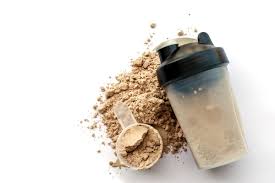
When it comes to achieving optimal endurance and energy, proteins play a crucial role in providing your body with the necessary building blocks. Proteins are made up of amino acids, which are the building blocks of muscles, tissues, and organs in the body. When you engage in endurance activities, such as long-distance running or cycling, your muscles are put under stress and may experience small amounts of damage. Consuming enough protein in your diet can help repair and rebuild these muscle fibers.
Additionally, proteins play a role in maintaining and regulating energy levels in the body. Protein can help slow the absorption of carbohydrates, preventing blood sugar spikes and crashes that can lead to decreased energy levels. This is particularly important during endurance activities, where consistent energy levels are key to performing at your best.
It’s important to note that not all proteins are created equal. When selecting protein sources, opt for lean proteins such as chicken, fish, and plant-based options like beans, lentils, and quinoa. These sources provide essential amino acids without excess fat or calories. It’s also important to consume a variety of protein sources to ensure you’re getting a diverse array of amino acids.
The timing of protein consumption is also important for endurance activities. Consuming protein shortly after a workout can help jump-start the muscle repair and rebuilding process, leading to improved endurance over time. A protein-rich snack or meal that includes carbohydrates within 30 minutes to an hour post-workout can help optimize recovery and support your endurance goals.
Overall, incorporating lean proteins into your diet is essential for achieving optimal energy and endurance. By providing your body with the necessary building blocks and regulating energy levels, protein can help you achieve your fitness goals and take your endurance to the next level.
Fats: The Right Kind for Optimal Endurance
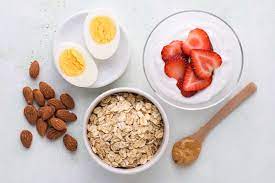
Fats often get a bad reputation in the world of nutrition, but the truth is, they are an important part of a balanced diet, especially for athletes and those seeking optimal endurance.
While saturated and trans fats can be detrimental to overall health, unsaturated fats, such as omega-3 and omega-6 fatty acids, are essential for maintaining healthy cell membranes and aiding in muscle recovery and growth.
Incorporating healthy fats into your diet can also improve your overall cardiovascular health, which is critical for maintaining optimal endurance. Some good sources of healthy fats include avocados, nuts, seeds, and fatty fish such as salmon.
It’s important to note that, while fats can provide energy for endurance activities, they should not be relied upon solely for fuel. Carbohydrates still reign supreme when it comes to providing the energy needed for intense physical activity. However, incorporating healthy fats into your diet can help to improve overall performance and endurance.
As with any macronutrient, it’s important to maintain a balanced intake of fats and not to rely on any one source too heavily. It’s also crucial to choose healthy, unsaturated fats over unhealthy saturated and trans fats, which can contribute to inflammation and cardiovascular disease.
Incorporating healthy fats into your diet is just one component of a well-rounded nutrition plan for endurance athletes. By paying attention to your macro and micronutrient intake, as well as staying hydrated, you can maximize your endurance potential and achieve your fitness goals.
Micronutrients for Energy and Endurance

In addition to macronutrients, which provide us with the fuel and building blocks for endurance exercise, we also need a variety of micronutrients to support optimal athletic performance. Micronutrients are the vitamins and minerals that our bodies need in smaller amounts to function properly.
One important micronutrient for endurance exercise is iron. Iron is necessary for the formation of hemoglobin, which is the molecule in our red blood cells that carries oxygen to our muscles. Without enough iron, we can become fatigued more quickly and our endurance suffers. Good sources of iron include red meat, poultry, fish, beans, and leafy greens.
Calcium is also important for endurance exercise, as it helps to support strong bones. When we engage in a high-impact exercises like running or jumping, our bones are subjected to a lot of stress. Having strong bones can help to prevent injuries and support us through our workouts. Dairy products, leafy greens, and fortified foods like orange juice are good sources of calcium.
Vitamin D is another important nutrient for endurance exercise, as it helps our bodies to absorb calcium and support our immune systems. Spending time outside in the sun is the best way to get vitamin D, but we can also get it from foods like fatty fish, eggs, and fortified dairy products.
Other important micronutrients for endurance exercise include B vitamins, which help to support energy metabolism, and electrolytes like sodium and potassium, which we lose through sweat and need to replace during and after exercise. A varied, balanced diet that includes plenty of fruits and vegetables, whole grains, lean proteins, and healthy fats can help to ensure that we’re getting all of the micronutrients we need for optimal athletic performance.
Vitamins and Minerals for Optimal Athletic Performance

While macronutrients such as carbohydrates, proteins, and fats are important for fueling and building endurance, micronutrients also play a crucial role in optimal athletic performance. Vitamins and minerals are essential for energy production, muscle function, and recovery. Here are some key micronutrients to keep in mind:
Vitamin C: This powerful antioxidant is important for protecting your muscles from damage during exercise and supporting your immune system. Good sources include citrus fruits, bell peppers, and broccoli.
Vitamin E: Another antioxidant, vitamin E helps protect your cells from damage and can improve your endurance by reducing oxidative stress. You can find it in nuts, seeds, and leafy greens.
Iron: This mineral is essential for transporting oxygen throughout your body and maintaining healthy red blood cells. Iron deficiency can lead to fatigue and decreased performance. Good sources of iron include red meat, beans, and leafy greens.
Calcium: While most people associate calcium with strong bones, it’s also important for muscle function and nerve transmission. Make sure to include sources such as dairy products, leafy greens, and fortified cereals in your diet.
Magnesium: This mineral plays a role in energy production and muscle function, and can also help reduce muscle cramps and soreness. You can find magnesium in foods like nuts, whole grains, and dark leafy greens.
While it’s always best to get your micronutrients from whole foods, supplements can also be helpful if you’re struggling to meet your needs. Just be sure to talk to your doctor or a registered dietitian before starting any new supplements.
Hydration: Essential for Endurance

Hydration is often overlooked in fitness nutrition, but it plays a critical role in optimizing your endurance and performance. When you exercise, your body sweats to cool down and regulate your body temperature. Sweat also causes your body to lose fluids and important electrolytes, which can affect your energy levels, muscle function, and overall performance.
To avoid dehydration during your workouts, it’s important to drink plenty of water before, during, and after exercise. You should aim to drink at least 8-10 ounces of water every 15-20 minutes during your workouts, especially if you’re sweating heavily. It’s also important to replenish your electrolytes, which are minerals that help your body maintain fluid balance and support your muscle function. You can do this by drinking sports drinks or electrolyte supplements during and after your workouts.
It’s important to note that dehydration can have serious consequences, including fatigue, cramps, heat exhaustion, and even heatstroke. In extreme cases, dehydration can be life-threatening. To avoid these risks, make sure you’re drinking enough water and replenishing your electrolytes as needed.
In addition to hydration during exercise, it’s important to stay hydrated throughout the day. Drinking water and other fluids can help prevent dehydration and maintain optimal performance. If you’re not sure how much water you should be drinking, a good rule of thumb is to aim for at least half of your body weight in ounces per day.
In summary, hydration is essential for endurance and optimal athletic performance. Make sure you’re drinking enough water and replenishing your electrolytes during and after exercise, and stay hydrated throughout the day to maintain your energy levels and support your overall fitness goals.
Pre- and Post-Workout Nutrition Strategies for Endurance

As important as what you eat throughout the day is, pre-and post-workout nutrition can make all the difference in your ability to power through intense workouts and recover efficiently. Here are some strategies for fueling your body before and after endurance workouts.
- Time your meals: Eating a large meal too close to a workout can cause discomfort, while eating too early may leave you hungry and without energy. Aim to eat a small, easily digestible meal or snack 30-60 minutes before your workout.
- Carbs are key: Complex carbohydrates such as whole grains, fruits, and vegetables are great sources of slow-releasing energy. They will help keep you fueled throughout your workout.
- Don’t forget protein: A small amount of protein before a workout can help boost muscle performance and recovery. Consider eating some Greek yogurt, a boiled egg or a protein shake before heading out to exercise.
- Refuel with carbs and protein: The 30-minute window after a workout is crucial for replenishing your glycogen stores and aiding muscle recovery. Eating a meal or snack containing both carbohydrates and protein can help achieve this. Try a smoothie with a scoop of protein powder or a grilled chicken salad with plenty of veggies.
- Hydrate: Replacing fluids lost through sweat is essential for recovery and performance. Drink plenty of water, or consider drinking an electrolyte sports drink to help replace sodium and potassium.
- Listen to your body: Everyone is different and will require different nutrition strategies based on their workout goals and individual needs. Pay attention to how you feel before and after exercise, and adjust your nutrition accordingly.
